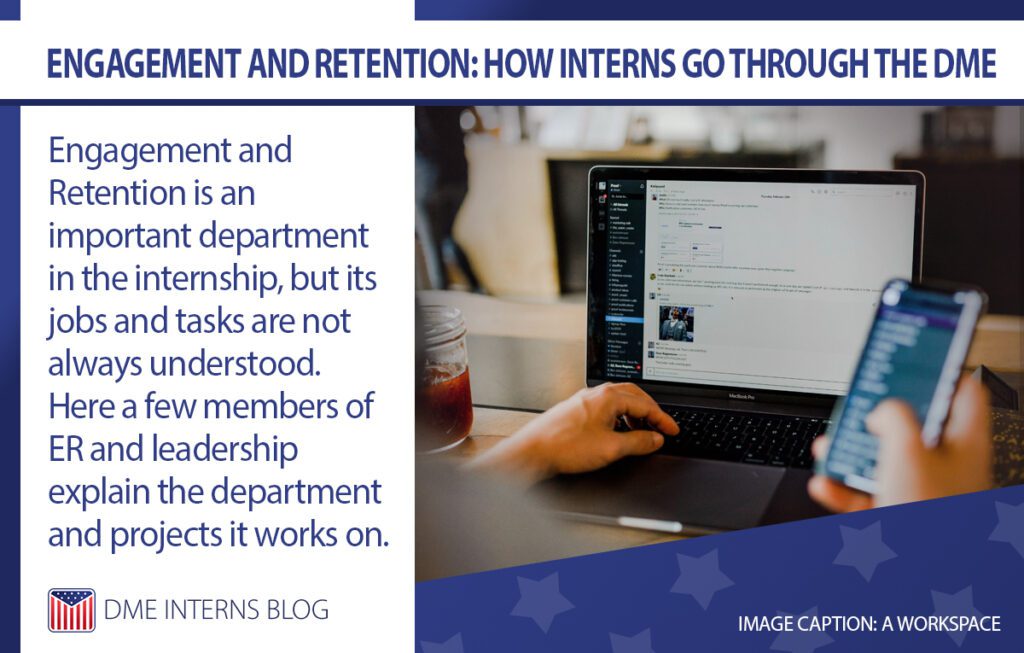Engagement and Retention(ER) is an important department in many real-world companies. However, on the Digital Media Engagement (DME) team, ER differs in certain ways. “Most ER professionals incorporate aspects of our engagement, metrics, onboarding, offboarding, and recruitment teams. ER professionals also deal with conflict resolution, payroll issues, and strategic planning,” said Calley Walker, the ER division officer. “We do not perform these tasks at the DME.”
“[And] while the work we do at the DME program is not quite the same as the work you might find in a corporate organization or business, there are still people who need coordination, guidance, and management,” she added. One of the most important parts of ER work is the onboarding of new interns at the beginning of the internship year, and the E&R boarding packet is a key part of this process. “The emphasis on familiarizing interns with the mechanics of the internship is vital to our onboarding process,” said Jazlyn Benitez, the ER department head, “because it enables interns to feel confident in knowing what is expected of them as an intern. It also helps to maintain the equilibrium of the internship itself — no one can follow the rules if they do not even know what the rules are, and a lack of rules can lead to chaos.”
Certain skills are required for doing ER work. “Successful ER professionals need to have great time management skills, and an excellent communication style, and E&R professionals need to be detail-oriented,” Calley said. “It is important for E&R professionals to be able to relay their messages to fellow employees, and in our situation, interns. It is equally important for E&R professionals to be able to manage their time well.” However, interns can gain skills while working in ER, too, such as learning to utilize multiple programs like Canva, Salesforce, and Google Office or doing cross-department work with departments like Web Development.
For Jazlyn, working in the ER has also taught her more about what she’d like to do in her professional career. “I’m fairly new to the world of ER, as I very recently decided that my career goal is to be an Industrial-Organizational psychologist (which is a career that uses concepts of ER and collaborates with ER departments),” she admitted. “I’ve never had an internship like this one before! I love getting to learn new things about the world of E&R and building a more solid foundation for my future career. It’s also very rewarding to be able to communicate with a variety of people from such different backgrounds. It’s been opening me up to many different perspectives and giving me firsthand experience on how to collaborate with a variety of different people.”
“Even though DME ER interns are not generally given tasks that deal with these ER aspects, there may be times when ER leadership members or other interns will need to address their concerns to other leadership,” explained Elizabeth Carter, part of E&R ’s executive leader team. The E&R department serves as a guiding and supportive force for the entire DME internship. Without a department that manages and analyzes intern data, it can be hard to determine the effectiveness of the whole internship.”
Writer: Sarah Concepcion
Editors: Annabelle Colton, Merrit Pope
Graphic Designer: Kiki Kelley




